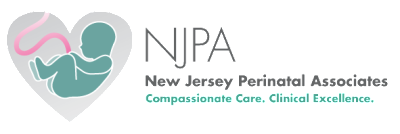April 2020 Updates from NJPA
Covid-19 Updates
Experts are learning more every day about the new coronavirus that causes COVID-19. The American College of Obstetricians and Gynecologists (ACOG) and the Society for Maternal-Fetal Medicine (SMFM) are following the situation closely and frequently update their websites with guidelines and recommendations.
Per the New Jersey Department of Health, as of April 21, 2020, there are 92,387 positive cases in the state with 4, 753 deaths and 92,439 negative results.
This newsletter will summarize some recent statements regarding COVID-19 and pregnant women. The newsletter will also include links to the most recent statements by both ACOG and SMFM.
On April 6, 2020, ACOG and SMFM issued a joint statement specifically with regards to the Centers for Disease Control and Prevention (CDC) removing pregnant women from their webpage that outlines “people who are at higher risk for severe illness” from COVID-19. Consistent with available data, the CDC continues to recognize that pregnant women have been at risk for severe illness, morbidity and mortality compared with the general population in other related coronavirus infections. The CDC’s current guidance regarding COVID-19 and pregnancy is based on limited data, which, at this point, does not indicate that pregnancy alone puts people at higher risk of severe illness from COVID-19 infection.
ACOG and SMFM continue to advise that all pregnant women follow the CDC guidance in preventing COVID-19 infection and take precautions to minimize exposure to COVID-19, including regular handwashing, social distancing and for those in the healthcare field, wearing appropriate personal protective equipment. ACOG and SMFM will continue to monitor data as it becomes available on COVID-19 and its particular effect on pregnant women.
The referral of pregnant women with COVID-19 to collaborating registries is encouraged. Information about the outcome registry at the University of California San Francisco can be found here – https://priority.ucsf.edu/
Covid-19 and Pregnancy Highlights
As of April 4, 2020, the CDC recommends that pregnant women admitted with suspected COVID-19 or who develop symptoms concerning for COVID-19 during admission should be prioritized for testing. Clinicians are also encouraged to test these women for other causes of respiratory illness, as appropriate.
With regards to vertical transmission, recent reports describe a few neonates with either an elevated IgM or positive PCR result for COVID-19. However, it is not clear that these cases actually represent vertical transmission, and further study is needed.
Preterm delivery has been reported among women positive for COVID-19 during pregnancy. However, it appears that some of these cases may be iatrogenic and not due to spontaneous preterm labor.
Patients can decompensate after several days of apparently mild illness, and women should be instructed to call or be seen for care if symptoms, particularly shortness of breath, worsen. Given how little is known about this infection, a detailed midtrimester anatomy ultrasound examination may be considered following first-trimester maternal infection. For those experiencing illness later in pregnancy, it is reasonable to consider ultrasonographic assessment of fetal growth in the third trimester.
Currently, no medications are approved for the treatment of COVID-19 by the US FDA. A number of medications approved for other indications as well as several investigational drugs are being studied in clinical trials. Drugs that have been considered or are under investigation for the treatment of COVID-19 include hydroxychloroquine (with or without azithromycin), remdesivir, tocilizumab, sarilumab, and convalescent plasma. A number of clinical trials of remdesivir are underway, and it is available on a compassionate-use basis, including in pregnant women. A number of clinical trials of Tocilizumab are also underway.
To download this newsletter, please click here.
